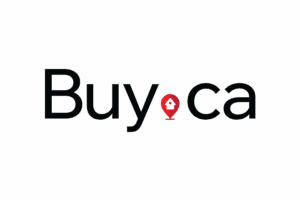How do investment taxes work in Canada?
If you’ve ever bought investments like stocks, bonds, or a property that isn’t your principal residence, you’ll want to understand what is considered an investment, and how investments are taxed in Canada. In most cases, when you sell any of these assets, you will have either a capital gain or a capital loss depending on if you sold it for a profit or a loss. If you sold your property for more than you bought it, the additional value over the principal is considered a capital gain and in Canada that means you need to pay taxes on that gain. However, some assets can be held in tax-advantaged accounts, and certain activity can lead to the CRA (Canada Revenue Agency) to consider your investment proceeds as business income.
Disclaimer: This article presents a very brief overview, and your specific circumstance may differ. Please get help from a licensed accountant if you have other tax questions. This article should not be considered tax advice, and is intended for educational purposes only.
What assets are considered investments?
The Canada Revenue Agency defines capital assets as the following:
“[Capital property] includes depreciable property, and any property which, if sold, would result in a capital gain or a capital loss. You usually buy it for investment purposes or to earn income.”
In terms of real estate this can include cottages, land, buildings, and even equipment used in a business or rental operation. Other common capital assets include stocks, bonds and units of a mutual fund trust. It’s important to note that this definition is not completely objective, some assets such as stocks or real estate, can be considered capital assets in one situation, and business inventory in another. This usually depends on the activity of the asset holder, whether the asset was purchased to generate income, such as rental income, or if the asset was bought and sold “in the nature of trade” for example someone speculating on the appreciation of a home.
What is a capital gain?
According to the Canada Revenue Agency’s official definition:
“You have a capital gain when you sell, or are considered to have sold, a capital property for more than the total of its adjusted cost base and the outlays and expenses incurred to sell the property.”
A capital gain refers to the increase in the value of a capital asset when you sell it for more than what you originally paid for it. The capital gains tax rates will vary depending on the province you live in since provincial tax brackets vary. In Canada, 50% of the value of any capital gains is taxable, so if you sell a property or investment for more than what you originally paid for it, you will have to add 50% of the capital gains to your income. You will then be taxed based on your tax bracket.
What is a capital loss?
When you sell assets for a gain, you have to pay tax on the profit based on your income tax bracket. What about when you sell for a loss? When you sell capital assets at a loss you have incurred a capital loss, which can be used to deduct from your capital gains for tax purposes. The capital loss inclusion rate is the same as the capital gains one: 50%. In practice, this means that it’s easiest to calculate all of your capital gains and losses together and then pay tax on 50% of the net gain (if you have one). If you sold assets for a $1000 profit, but you also sold an asset for $1000 less than you paid for it, your capital gains and losses would be net 0 and you would have no capital gains to be taxed on.
How do I calculate capital gains tax?
With the Perch capital gains tax calculator, you can easily determine the amount of capital gains tax you will have to pay. This will be based on your tax bracket as well as the province you live in. If you are still unsure, it’s best to speak with your mortgage advisor to learn more about capital gains tax.
Tax advantaged accounts
The sale of an investment property is almost always considered a capital gain, but what about stocks, bonds, and other financial instruments? In Canada we have two important tax advantaged accounts which everyone can benefit from. The first is the TFSA, or Tax Free Savings Account. Unlike the name would suggest, the TFSA is an investment account where you can hold stocks, bonds, and other financial assets, where you will not have to pay any taxes on the sale of your investments. As of 2022 the maximum amount you can contribute to your TFSA per year is $6000. The other notable tax advantaged account we have in Canada is the RRSP, or Registered Retirement Savings Plan. The contribution room to an RRSP is calculated based on your income and the funds contributed are tax deductible. Any purchase or sale of assets within your RRSP are tax exempt, however you cannot freely withdraw money from the account without incurring taxes like a TFSA. When you withdraw money from an RRSP it is usually taxed as regular income, and there may be additional penalties for withdrawing over a certain amount and before you reach a certain age.
Business income
While most assets like stocks and real estate are considered capital assets and taxed under capital gains, if you meet certain activity indicators the CRA might determine that your investments classify as business income. In this case instead of the 50% capital gains tax inclusion rate, your gain from these investments would be taxed at a 100% inclusion rate, or in other words all of it would be included in your income as you are considered to be running a business. In real estate investing, the CRA may deem your sale of a property to be business income if they suspect you purchased the home to sell shortly after it appreciates, commonly called “house-flipping”. If you purchase a property for the purpose of generating rental income however, it should be considered a capital asset as it is clear your business generates income from renting, not from the sale of properties.
That was a quick overview of how investments are taxed in Canada. If you have more specific tax questions, it’s probably best to get in touch with a tax professional like a licensed accountant who can give you specific advice. If you’ve got more questions about homeownership, Perch is here to help you navigate the world of real estate.
 Alex
Alex





